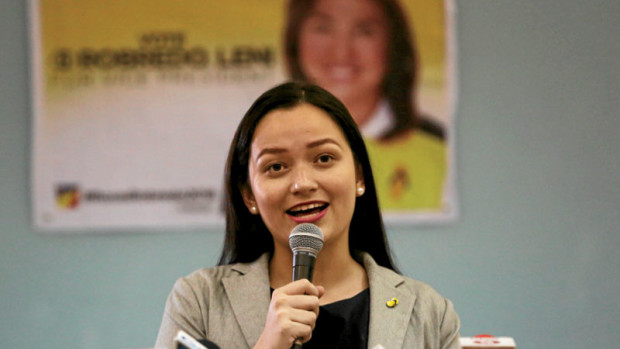The camp of Vice President Leni Robredo said it had raised its concern on the rising number of killings in the drug war to the Department of Interior and Local Government (DILG) and the Philippine National Police (PNP) in January but it was ignored.
“Our Office has asked the DILG in writing last January 24, copy furnished PNP, for information, particularly on investigations relating to drug killings,” Robredo’s spokesperson Georgina Hernandez said in a statement to the media on Thursday.
“Unfortunately, we have not received any response,” Hernandez said.
Reacting to the video message of Robredo to the United Nations (UN) denouncing President Duterte’s bloody drug war, the PNP asked Robredo to relay her concern about the reported human rights abuses to the police before broadcasting it to the international community.
READ: PNP to Robredo: Report ‘palit-ulo’ cases to us before telling int’l community
PNP spokesperson Senior Supt. Dionardo Carlos was particularly referring to the “palit-ulo” scheme which Robredo revealed in her six-minute video message.
The palit-ulo scheme, which means “exchange heads,” is allegedly employed by the police and barangay authorities in poor communities where the spouse or any relative on the drug list will be taken if the person himself could not be found.
Carlos asked Robredo to give specific details on the alleged incident, where it happened and who were involved, to avoid giving the impression that the entire PNP is using the same scheme.
But Hernandez said several members of poor communities have sought help from the Office of the Vice President and reported to them the human rights abuses committed in the drug war.
“Several members of poor communities, who have felt voiceless and powerless in the face of the killings, have approached our Office to share their stories and ask for help regarding their experiences on the war on drugs. These are the stories that the Vice President spoke about in her video message to the United Nations,” she said.
“The ordinary course of action would have been for them to go to the police for these complaints to be investigated. The fear that scalawag members of the police force are involved, as documented by human rights groups and as mentioned by the President himself, have made people feel there is nowhere else to go,” Hernandez said.
She added: “How can we then expect poorer victims to have the courage to speak up and the confidence that the relevant authorities will address their plight?”
Robredo’s office then urged the Duterte administration to probe the 7,000 summary killings in the drug war and hold the perpetrators behind the deaths accountable.
“We appeal to the administration to focus on what it said it will do: investigate the cases, clean the ranks of the police force, and hold perpetrators accountable,” said the spokesperson. JE/rga
